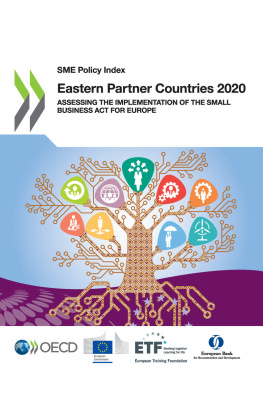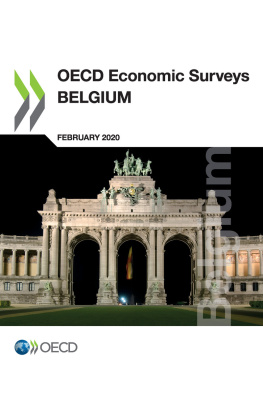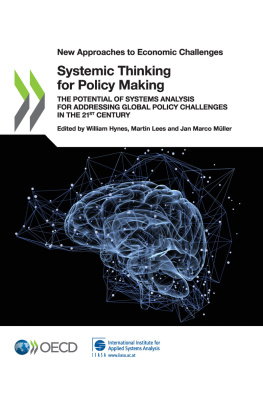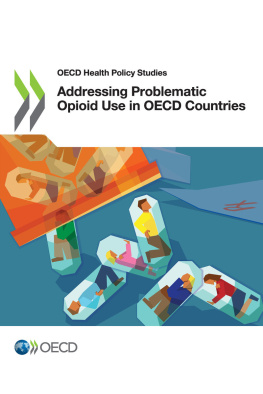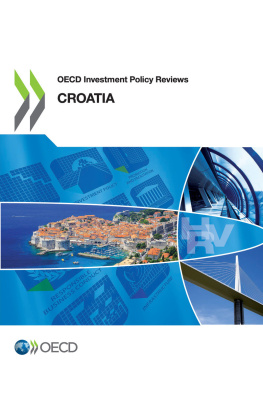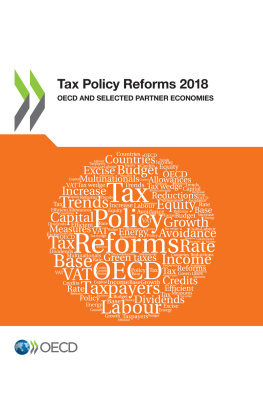OECD - SME Policy Index: Eastern Partner Countries 2020
Here you can read online OECD - SME Policy Index: Eastern Partner Countries 2020 full text of the book (entire story) in english for free. Download pdf and epub, get meaning, cover and reviews about this ebook. year: 2020, publisher: OECD Publishing and European Union, genre: Politics. Description of the work, (preface) as well as reviews are available. Best literature library LitArk.com created for fans of good reading and offers a wide selection of genres:
Romance novel
Science fiction
Adventure
Detective
Science
History
Home and family
Prose
Art
Politics
Computer
Non-fiction
Religion
Business
Children
Humor
Choose a favorite category and find really read worthwhile books. Enjoy immersion in the world of imagination, feel the emotions of the characters or learn something new for yourself, make an fascinating discovery.
- Book:SME Policy Index: Eastern Partner Countries 2020
- Author:
- Publisher:OECD Publishing and European Union
- Genre:
- Year:2020
- Rating:3 / 5
- Favourites:Add to favourites
- Your mark:
- 60
- 1
- 2
- 3
- 4
- 5
SME Policy Index: Eastern Partner Countries 2020: summary, description and annotation
We offer to read an annotation, description, summary or preface (depends on what the author of the book "SME Policy Index: Eastern Partner Countries 2020" wrote himself). If you haven't found the necessary information about the book — write in the comments, we will try to find it.
OECD: author's other books
Who wrote SME Policy Index: Eastern Partner Countries 2020? Find out the surname, the name of the author of the book and a list of all author's works by series.
SME Policy Index: Eastern Partner Countries 2020 — read online for free the complete book (whole text) full work
Below is the text of the book, divided by pages. System saving the place of the last page read, allows you to conveniently read the book "SME Policy Index: Eastern Partner Countries 2020" online for free, without having to search again every time where you left off. Put a bookmark, and you can go to the page where you finished reading at any time.
Font size:
Interval:
Bookmark:
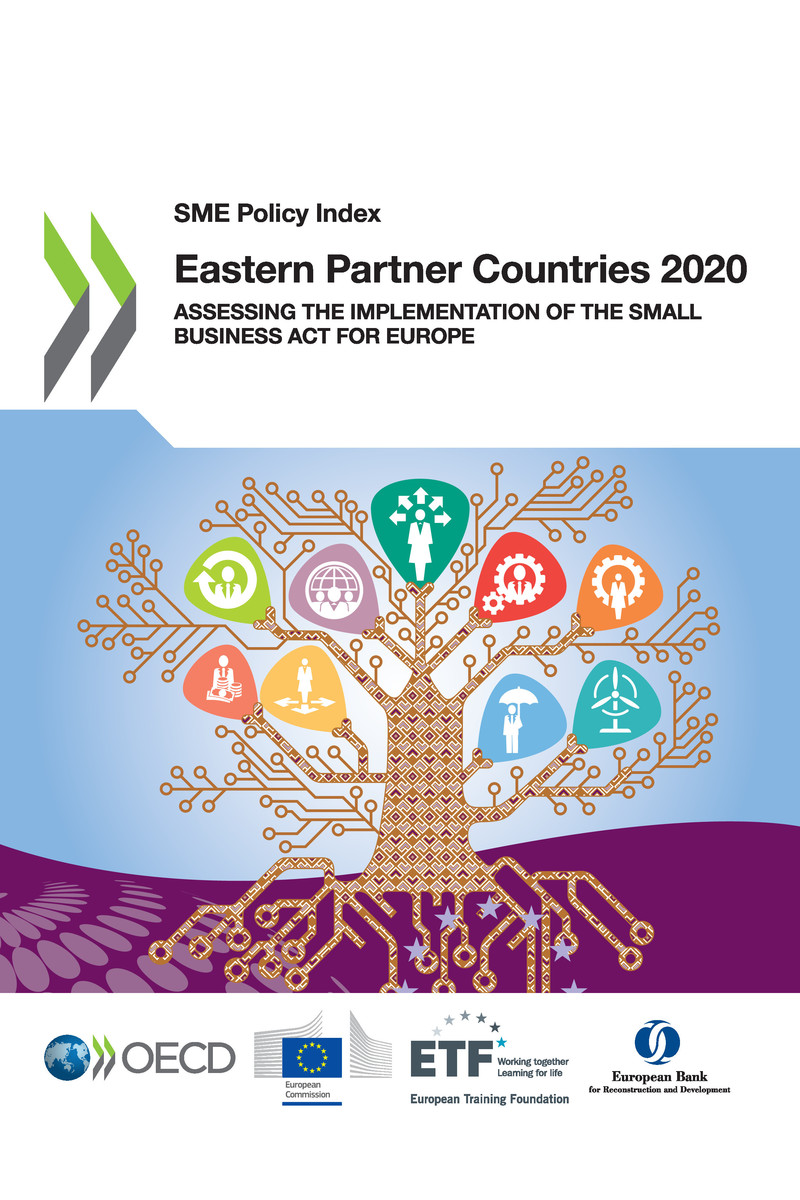
OECD et al. (2020), SME Policy Index: Eastern Partner Countries 2020: Assessing the Implementation of the Small Business Act for Europe , SME Policy Index, European Union, Brussels/OECD Publishing, Paris, https://doi.org/10.1787/8b45614b-en .
The information in this document with reference to Cyprus relates to the southern part of the Island. There is no single authority representing both Turkish and Greek Cypriot people on the Island. Turkey recognises the Turkish Republic of Northern Cyprus (TRNC). Until a lasting and equitable solution is found within the context of the United Nations, Turkey shall preserve its position concerning the Cyprus issue.
The Republic of Cyprus is recognised by all members of the United Nations with the exception of Turkey. The information in this document relates to the area under the effective control of the Government of the Republic of Cyprus.
Small and medium enterprises (SMEs) are a source of jobs and growth. They also have a role to play in the diversification of output, export and employment, and are a vital source of entrepreneurial human capital. This is particularly important at a time when the countries of Eastern Europe and the South Caucasus strive to make their economies more inclusive and more resilient to shocks. SME development has therefore been central to co-operation within the framework of the Eastern Partnership (EaP), a joint initiative of the European Union and six neighbours Armenia, Azerbaijan, Belarus, Georgia, the Republic of Moldova and Ukraine.
Today, SMEs generate about half of total business-sector value added in the EaP region, and they account for slightly more than half of total business-sector employment. Their innovation potential and ability to adapt to fast-changing market conditions makes them an increasingly important source of entrepreneurial dynamism.
Since 2012, the SME Policy Index for Eastern Partner countries has been an important source of support for policymakers in the region and for their external partners seeking to design and deliver better SME-support policies. Structured around the ten principles of the Small Business Act (SBA) for Europe, the Index is a unique benchmarking tool designed by the OECD, the EBRD, the European Training Foundation and the European Commission to assess countries institutions and SME policies against EU and international best practices.
The report SME Policy Index: Eastern Partner Countries 2020 marks the third SBA assessment for the EaP region on the basis of the Index. It provides a comprehensive overview of SME policies in the region organised around the SBA principles, and it monitors the progress made since 2016. Across the region, governments have worked to promote better strategies for SME development and to build institutions that can help translate those strategies into action and deliver tangible results. Many recommendations provided in the 2016 assessment have been implemented; particularly those focusing on regulatory policies, institutional frameworks and measures supporting entrepreneurial skills and mindset of women and men.
However, important challenges remain. While the situation varies from country to country, a few broad trends stand out. First, a more demand-driven, collaborative approach to designing support programmes could help ensure a better fit between public action and SME needs. Second, stronger monitoring and evaluation systems, underpinned by well-designed key performance indicators, would enable governments to capture the impact of policies on firms, as well as use public resources more efficiently and adapt and adjust SME policies on the basis of better evidence. Finally, level playing field conditions are critical to the success of any effort to promote entrepreneurship and small firm growth. EaP countries still have much to do to fight corruption and to ensure business integrity, competitive neutrality and equal access to inputs and markets for all firms, regardless of size or ownership. The current report thus includes an assessment of three dimensions of the business environment that transcend the traditional concerns of SME policy: competition, contract enforcement and business integrity. This provides a basis for identifying structural reform priorities that will create a better business environment for firms of all sizes.
We commend the efforts of the Eastern Partner countries to foster private sector development through better SME policies, as well as better implementation of those policies, and look forward to continuing our work with them to deliver better opportunities for firms and citizens across the region.

Angel Gurra
Secretary General,OECD

Olivr Vrhelyi
EU Commissioner for Neighbourhood and Enlargement Negotiations

Suma Chakrabarti
President, European Bank for Reconstruction and Development

Cesare Onestini
Director, European Training Foundation
Font size:
Interval:
Bookmark:
Similar books «SME Policy Index: Eastern Partner Countries 2020»
Look at similar books to SME Policy Index: Eastern Partner Countries 2020. We have selected literature similar in name and meaning in the hope of providing readers with more options to find new, interesting, not yet read works.
Discussion, reviews of the book SME Policy Index: Eastern Partner Countries 2020 and just readers' own opinions. Leave your comments, write what you think about the work, its meaning or the main characters. Specify what exactly you liked and what you didn't like, and why you think so.

